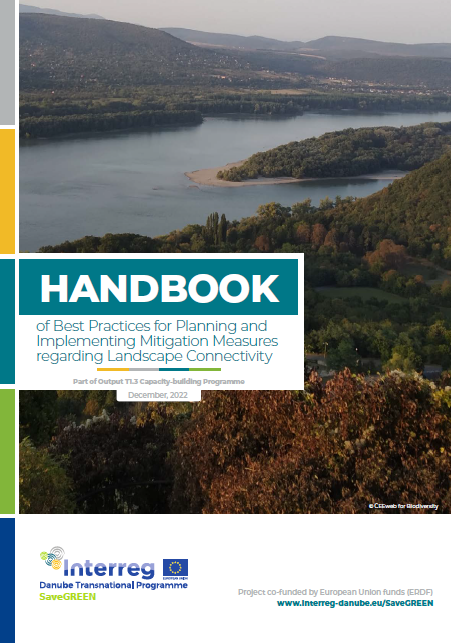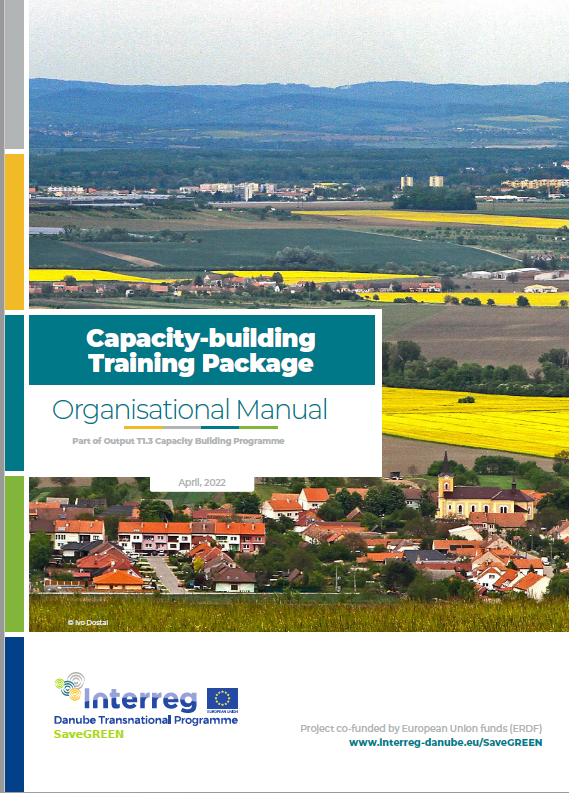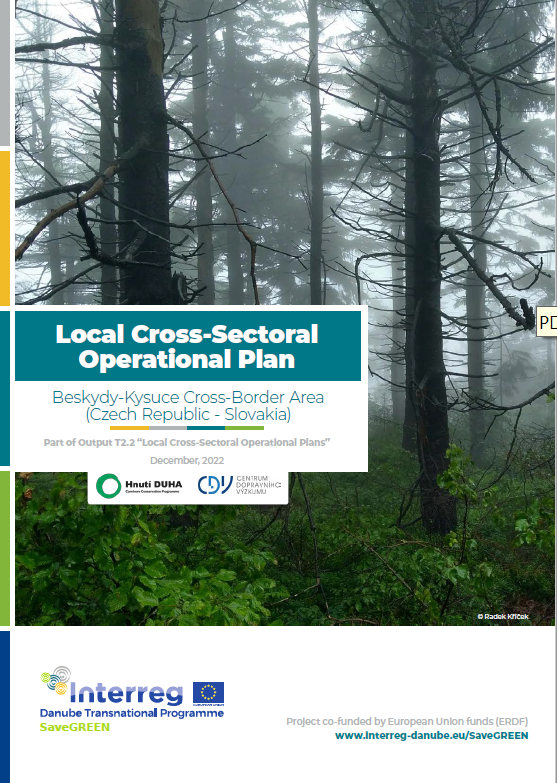Safeguarding the functionality of transnationally important ecological corridors in the Danube basin

The SaveGREEN project is set to work on the critical theme of ecological corridors in the Carpathian and further mountain ranges of the Danube region.
Building on the key results of previous Interreg DTP projects — i.e. TRANSGREEN, ConnectGREEN and HARMON — SaveGREEN will identify, collect, and promote the best solutions for safeguarding ecological corridors — including monitoring the impact of mitigation measures.
The project will focus on critical ecological corridors located in the Alpine-Carpathian Corridor, the Kobernausser forest (Austria), the Beskydy-Kysuce Czech-Slovak cross-border area), in Novohrad-Nógrád Hungarian-Slovak cross-border area, in the Upper Mures valley (Târgu Mureş–Târgu Neamţ) and the Lower Mures valley (Arad-Deva) in Romania, the Zakarpatska region in Ukraine, and the Rila-Verila-West Border mountains in Bulgaria — all of them impacted by linear transport projects and unsustainable land use. Thus, it will create best-practice examples in seven pilot areas with different landscape matrices.
Finally, basing its work on integrated planning, it will address all these challenges by giving necessary recommendations to improving national and European Union (EU) policy and funding frameworks, building the capacity of authorities and practitioners, standardising the monitoring of measures, and strengthening cross-sectoral platforms at the local, national, and international levels.
Background
Many valuable ecological corridors of the Carpathian and other mountain ranges in the Danube region are currently impeded or threatened by economic development — such as linear transport infrastructure construction, and intensive agricultural, forestry, or water management practices. The reason for these conflicts is that they are not sufficiently planned with the goal to maintain ecological connectivity and the flow of multiple ecosystem services that these Green Infrastructure elements provide. Mitigation measures, such as green bridges, are often missing or dysfunctional because of inadequate design, location, and inappropriate management of the surrounding lands and their use (e.g. agriculture, forestry). The impacts, moreover, translate into traffic kills and a lowered reproductive success of key species who are dependent on functional corridors.
Goals & Objectives
- Improve the ecological functionality and financing of Green Infrastructure
- Improve mitigation measures as elements of ecological corridor’s management
- Increase the functionality of ecological corridors as integrated elements of Green Infrastructure
Activities
The project will aim to foster cross-sectoral and transnational cooperation, as well as building comprehensive know-how, towards the development of concrete solutions aimed at improving, restoring, and preserving the functionality of key ecological corridors in the Carpathian range, based on the learnings of the implemented methods at 8 pilot areas in Austria, Czech Republic, Slovakia, Hungary, Ukraine, Romania, and Bulgaria. The range of activities include:
- Development of a standardised monitoring methodology for structural and functional connectivity, including an application toolbox for the monitoring of structural and functional connectivity for field experts.
- Development of a capacity-building program for public authorities and key stakeholders on how to integrate Environment Impact Assessment (EIA), Strategic Environment Assessment (SEA), and cost-benefit analysis into the project planning processes.
- Development of cross-sectoral operational plans to safeguard the functionality of ecological corridors in the pilot areas engaging relevant stakeholders of the specific pilot areas and the national level.
- Implementation of selected actions of the local cross-sectoral operational plans.
- Support the mainstreaming of ecological connectivity into EU and global policies through cooperation among macro-regional strategies (i.e. EUSDR and the Carpathian Convention).
- Development of recommendations towards the integration of mitigation measures/GI into sectoral policy and decision making.
- Strengthening of cross-sectoral cooperation among key players, promotion of project results in the Danube basin and beyond, and capacity building at the national level.
Types of services
- Building cross-sectoral and transnational cooperation on the topic of restoration, and preserving the functionality of key ecological corridors in the CEE region
- Capacity building
- Building comprehensive know-how and collecting best practices
- Fieldwork
- Pilot program testing
- Communications and awareness-raising campaigns















